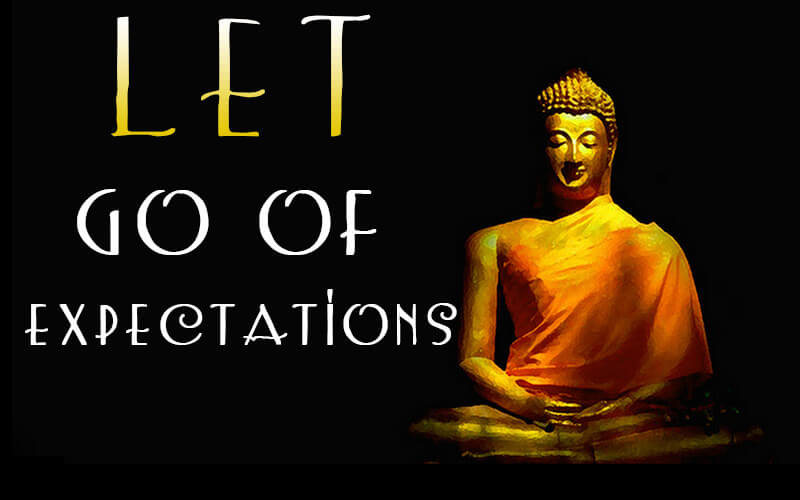
In today’s world, the one thing that is sowing seeds for heartbreak in relationships is people’s unreasonable expectations. Think about it. When you say something doesn’t meet your ‘needs’, you mean things are not happening according to your thought process. In this way you develop expectations about everything in life: your workplace, your co-workers, your friends, relations and everyone directly associated with you.
These expectations lead you to control people and situations in your life. Sooner or later, this is brought to create bitterness and suffering. When you exert control on things, the external world loses its natural intelligence which is designed to fulfil your desires. It is said that desires get fulfilled in a state of non-attachment. Your natural state is of trust and intelligence. Expectation is the very opposite of trust and it aligns us to Ego and blinds us to the intelligence needed to create favourable outcomes. Essentially, expectations happen when you don’t know and don’t believe in the higher power.
To try to change situations according to your thought process is a futile exercise. It can only lead to frustration. Here are some ways in which you can resolve this difficulty and be at ease.
Identify faulty assumptions
Most of the time, you assume certain things. For instance, “Since I work hard for the company, I should be getting a raise in three months.” “If you cared for me, you would do this…” “Since I paid you for this, you must..” This kind of reasoning is based on faulty assumptions based on the following:
- Love or work can be defined in a certain way
- Your assessment of yourself is correct
- The other person/company also agrees to this definition
Well, neither of these above assumptions is reasonable. Once you accept that your way of thinking is not the ONLY right way, you’ll find it easier to reject these assumptions. With this, you will adjust or even completely drop your expectations.
Switch perspective
If you stand in the shoes of the other person or see things from the perspective of your company’s management, you might realise why they are behaving in a certain manner. Understand that every person has their own limitations, thinking, behaviour weaknesses and strengths, and they will evolve in their own time. For your part, acceptance of their behaviour and a non-judgemental attitude will be the key to finding peace.
Observe the Other carefully
When you have stopped expecting certain behaviour from others, you free yourself to see more clearly. If they are not meeting your expectations, what are they exactly doing? You will now see what is really happening, instead of constantly seeing the gap between what they do and what you want them to do.
For example, if you expect your child to obey your instructions, but he starts questioning them, it may upset you that he doesn’t meet your expectation of what a ‘good boy’ should be. When you drop this expectation and listen to his questions instead, you may pick up on a specific fear he has, which makes him resist your instruction. When you see more clearly, you can respond more effectively.
Know the consequences
You too would be upset if somebody loved you only when you behaved a certain way, or if your employees listened to you only because you paid them. Children who are raised with this kind of conditional love grow into insecure adults, who try too hard to please others. Spouses who feel they are not good enough for their partners may seek approval and acceptance in someone else’s arms.
Relationships are not transactions. If you are in a relationship because of what you get out of it, it is a transaction. Everyone has needs, but it is futile to expect the other person to meet these needs entirely. Once you accept responsibility to meet your needs on your own, it is easy to let go of expectations. Now you can be in a relationship for who you are and not for what you can get.
Seek an agreement
If one of your expectations is important because it a valid service request or it touches on non-negotiable values or morality, you must seek to convert this expectation into an agreement with your partner. Understand that every relationship, whether it is with a company or a person, is based on an exchange of energy. It may be a service or money or love-energy related exchange. Use this power to turn the situation in your favour.
Decide on what is non-negotiable to you. Highlight this to the other person, and explain why it is important. Calm discussions work much better in this case than shouting matches. Be very specific about the behaviour you expect and ask if the other party agrees. Be prepared to return the favour. Once both of you have agreed, honour the ground rules.
If you cannot convert a non-negotiable expectation to an agreement, you will have to make a tough decision. You have to let go either of the expectation or the person. Personally, I believe a flesh-and-blood human being is almost always worth holding on to, rather than expectations that exists only in your mind.







